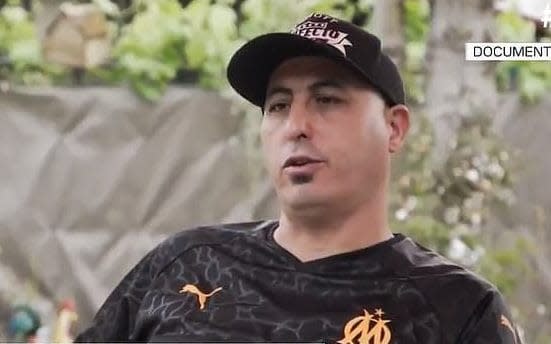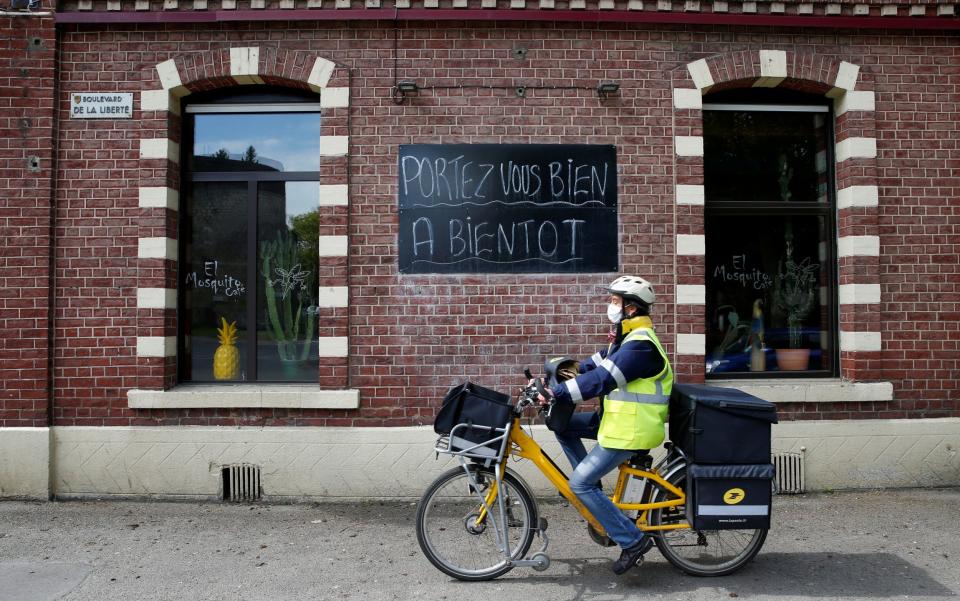France's 'patient zero' caught coronavirus in December

A 43-year-old Frenchman believed to be the country's "patient zero" in the coronavirus outbreak has identified himself and recounted doctors' bafflement at his mystery infection in December.
On Tuesday, news of the previously unrecorded infection prompted the World Health Organisation to urge countries to investigate any other early suspicious cases.
Amirouche Hammar came forward to French media after a hospital near Paris revealed it had re-tested old flu samples and found a positive test for coronavirus dating back to December 27.
China reported the new virus to the WHO on December 31, but there were no confirmed cases abroad until January 13.
France officially announced its first case, in Bordeaux on January 24 – also Europe's first – but Mr Hammar's infection suggests the virus was circulating well before that date.
Speaking to BFM TV, he said he initially had a dry cough and fever and assumed he had the flu. However, when he started suffering chest pains and breathing difficulties, he drove to the hospital.
"They said: 'Perhaps you have an infection, a pulmonary infection, although it's not certain. But what you have is very serious, very serious, because you are coughing blood. It's not normal flu,"' he said.
It is unclear how Mr Hammar, a fishmonger from Algeria who has asthma and diabetes, caught the virus as he has no direct links to China. One of his children had fallen ill with an unusual pneumonia shortly before him.
However, his wife works at a supermarket near Roissy Charles de Gaulle Airport which is frequented by travellers.
"We're wondering whether she was asymptomatic,' said Dr Yves Cohen, the head of intensive care at the Avicenne hospital where Mr Hammar was treated.
Mr Hammar's wife said she thought it was likely she caught it from airline passengers. "We serve customers who come straight from the airport. They come with their suitcases, so it must be that," she told BFM TV.
Mr Hammar, who lives in Bobigny, returned home after several days in hospital and has fully recovered. He had no idea he had been infected with the new virus until Dr Cohen contacted him in recent days and confirmed that he had tested "100 per cent positive".

Dr Cohen said scientists at two hospitals had re-tested samples from 24 patients, one of which turned out positive.
The samples had all been collected to detect flu using PCR tests – the same screening process used to detect the presence of coronavirus. Each sample was re-tested several times to ensure there were no errors, he added.
"Identifying the first infected patient is of great epidemiological interest as it changes dramatically our knowledge" about the spread of coronavirus, wrote Dr Cohen, who published a study on the matter in the International Journal of Microbial Agents.
He said it was too early to say for sure whether Mr Hammar was France's "patient zero" as "perhaps there are others in other regions".
"All the negative PCRs for pneumonia must be tested again. The virus was probably circulating," he added.
Etienne Simon-Lorière, of the Pasteur Institute, said that, given the different variants of the virus in France, it was likely there were several early cases as "the virus wouldn't have been able to change so much in such a short space of time".
The WHO described the findings as "exciting news" and said they could help scientists better understand the evolution of coronavirus.
"This gives us a whole new picture on everything, and yes of course it would be great if all countries who have unspecified cases of pneumonia in recent months, and even in December, even in November, would check them against Covid-19," said spokesman Christian Lindmeier.

